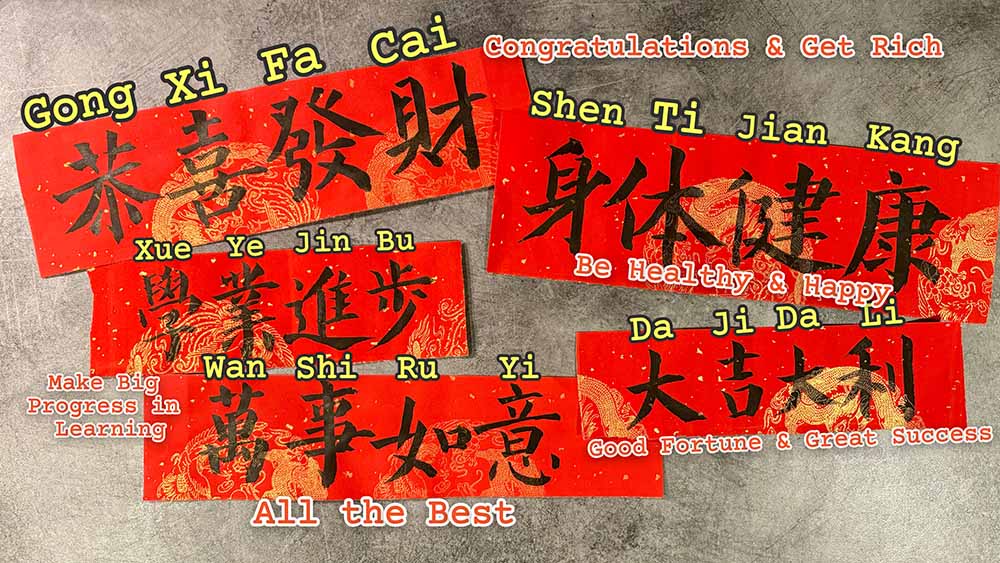Chinese people are preparing for an exciting celebration as Chinese New Year approaches, where in Cardiff can we celebrate the Spring Festival?

On Saturday 10 February 2024, 12-3pm, Cardiff Central Library Hub would provide free activities and performances for all ages to celebrate Chinese New Year & Lantern Festival. It is a collaborative event with Cardiff University and local community members and organisations.
“As the event focus is on celebration of culture, most of the activities remain similar to previous years although the Chinese Painting and Kungfu Demo are new this year.” Andrea Currie, campaign manager and media advisor of Cardiff Council, introduces.
“The event will provide visitors with a chance to meet Wealthy God and collect red pockets with chocolate coins. There will be a Lion Dance performance, Tea Tasting, Calligraphy, Chinese Music & Dance, Traditional Chinese Medicine, Martial Art- Kungfu demo, Traditional dress try-on, Papercutting, Lantern making, how to use chopsticks, Chinese Chess and much more.” Andrea also adds.
Other Chinese New Year Events coming in Cardiff
On February 29 from 6-7pm small scale music performances would be held at the Carne Foyer in the Royal Welsh College of Music & Drama to mark Chinese New Year and St David’s Day.
On Sunday, February 11, over in Cardiff Bay from 12 noon to 4pm, you can learn about the Chinese culture and enjoy a variety of traditional activities, from paper cutting and calligraphy to lantern making and more.
The day will also feature entertainment from a friendly and charismatic Chinese Lion. 20-minute appearances planned at 12:30pm, 2pm, and 3:30pm. No booking is required, you can just drop in at the Red Dragon Centre, Hemingway Rd, Cardiff CF10 4JY.
On February 10 from 10am-4pm, Chinese New Year celebration would take place at Insole Court. There would be games, arts & crafts, story reading, street food and more.
This year, Chinese New Year is on February 10th, so the New Year’s Eve is on February 9th. The date of Chinese New Year changes annually because it follows the lunar calendar, not the Gregorian calendar. It typically between January 21st and February 20th.
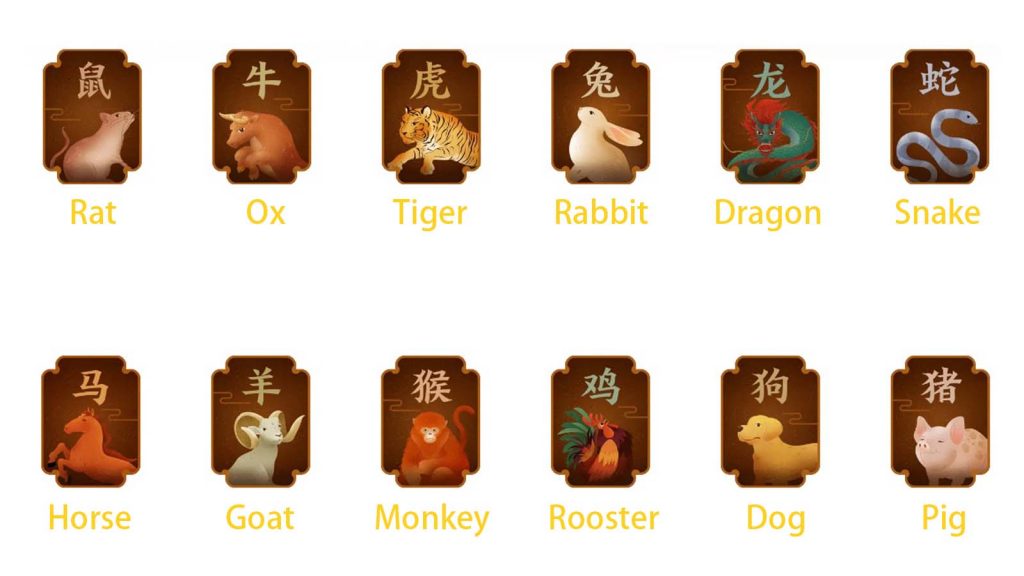
This Chinese New Year is the year of dragon. In Chinese culture, the twelve animals of the zodiac hold special significance and are deeply ingrained in tradition beliefs and customs. Each of these animals represents a year in a twelve-year cycle, known as the Chinese zodiac.
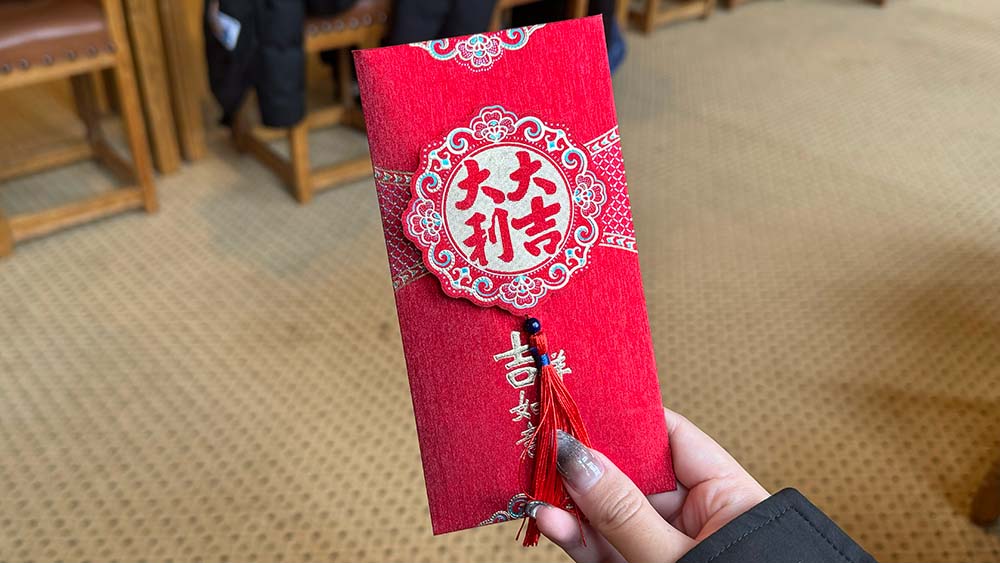
The tradition of receiving red envelopes with money, known as “lucky money” or “ya sui qian,” during Chinese New Year is a cherished custom in China. The tradition of receiving lucky money adds joy and excitement to the Chinese New Year celebrations, embodying the spirit of generosity, love, and prosperity.
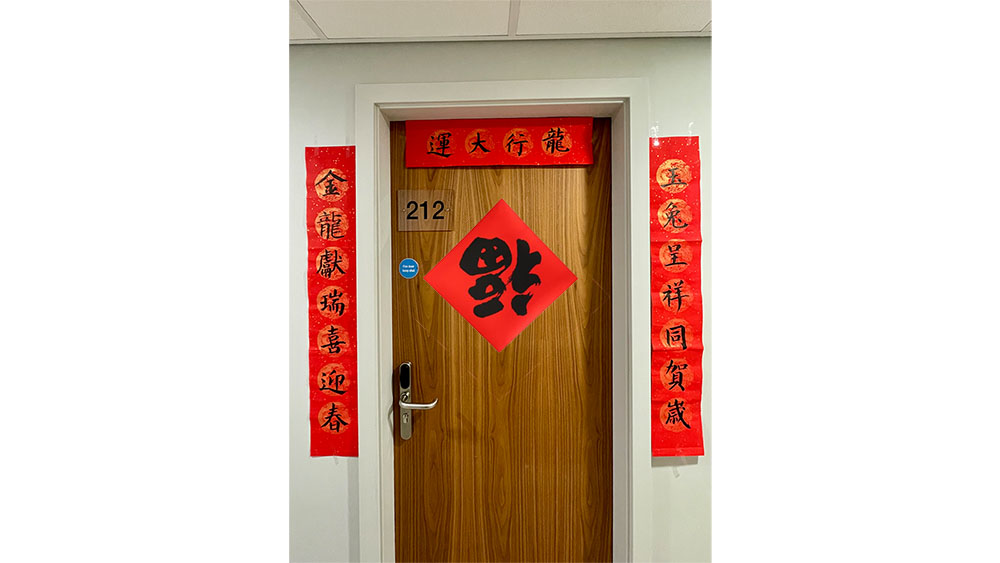
During the festival, Chinese people would decorate their house with lots of special things. The most representative decorations are spring couplets and fu character. Spring couplets usually pasted in pairs, as even numbers are associate with good luck in Chinese culture. “Fu”(福) means “good fortune” in Chinese. Pasting the character upside down means the good fortune is coming.
On Chinese New Year’s Eve, people in China typically gather for a reunion dinner called the “New Year’s Eve dinner” or “family reunion dinner.” This meal symbolizes family unity and prosperity. It is perhaps the most loved aspect of the Spring Festival. It takes place on Chinese New Year’s Eve (February 9th in 2024).
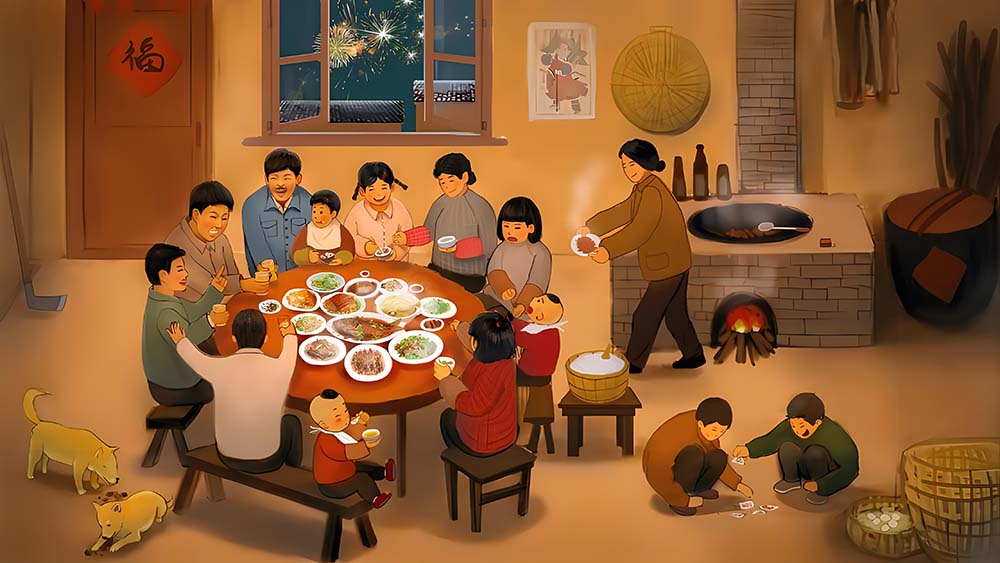
Families often prepare elaborate dishes. Chinese dumplings and spring rolls are classic lucky food for new year. They look like Chinese silver/gild ingots, symbolize that the more you eat during the New Year celebrations, the more money you can make in the New Year.
Fish has auspicious symbolism for being a surplus every year. Chicken is usually served whole to symbolize “unity” and “wholeness”, while also signifying “a good beginning and end” to the year. Glutinous rice cake represents getting higher year by year.

After dinner, it’s common to watch the annual Spring Festival Gala on television, set off firecrackers to ward off evil spirits, and stay up late to welcome the arrival of the new year with hope and excitement.
Finally, there are lots of greetings during Chinese New Year you might use. Chinese people use these blessings to express their good wishes to others.
